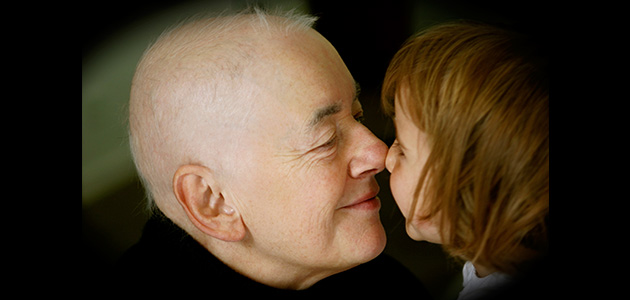03 February 2014
Cancer and Theology
by Dr Mark McConnell
On the 20th February I will be presenting a paper at a “Theology, Spirituality and Cancer” Symposium at the University of Auckland, co-sponsored with Laidlaw College.
My paper is entitled Suffering, Cancer and Theological Meaning: The Disruptive Power of Christian Hope. I will be looking at how various theological approaches give meaning to suffering in such a way that they divert us from the real meaning and power of a disruptive hope based on the Christ’s resurrection. Much of what I have to say will be a summary of some of the material I cover in my Theology of Suffering and Hope class at Laidlaw.
In preparation for my paper I have been reading a newly published book entitled Cancer and Theology. It’s edited by Jake Bouma – blogger, Luther pastor, and Hodgkin Lymphoma survivor. He blogged/documented his way through his cancer posting written and video updates. He also had blog series featuring “an assortment of voices exploring how to think theologically about cancer and those who have it”. These voices included some well known theologians, along with some less well known. These blog posts were then gathered into a book, Cancer and Theology, with some additional chapters added.
About the link between cancer and theology, Jake says...
“It didn’t take long from hearing the doctor utter the word “lymphoma” for me to begin reflecting on my cancer theologically — I doubt it takes any cancer patient long, Christian or otherwise. I hold the belief that all of life is one big theological exercise, that our minute-to-minute actions betray a comprehensive and operative theological framework at work either consciously or unconsciously. That we are inherently theological beings suggests that any life crisis — small, medium, or large — equates to a theological crisis.”
The blog post series and the resulting book were a way of dealing with his theological crisis.
Overall, the book is great. The different voices provide a rich diversity, but yet there seems to be a common thread running through each one – the importance of incarnational presence. As Brian McLaren says, “Presence means everything, and theologically, I think it is the deepest thing I know about God and cancer” (Location 116). The book is so good that I have been thinking about using it as a textbook for my Theology of Suffering and Hope class.
On the downside, though, I feel that there could have been a bit more theological reflection and grappling with some relevant biblical texts. Perhaps this is a lacking because of the stress of presence rather than theological answers – the caution over “mere words”. I understand that. But I would argue that we need a strong theology that undergirds our practice of presence.
In this regard, there were two stand-out essays for me. Perhaps they might be highlights because they resonate with my own theological approach to suffering. The first by Andrew Root, most well known for his theologically rich reflections and books on youth ministry, and who teaches at Laidlaw on an adjunct basis. In “Interruptions” his theology is deeply Christocentric with a great mixture of both hope and realism. But be aware. He doesn’t hold back with the use of language.

The second is by Mike Stavlund on “Solidarity, or Speaking Without Words”. His reflection centres on the book of Job. His basic thesis is that humans are “pattern-seeking, storytelling animals who find causal relationships in our physical and social environments.” This tendency, however, is often our undoing.
Put simply, for Stavlund, in the book of Job the myth of meaning in suffering is deconstructed.
The most behind-the-curtain revelation comes in a single devastating word in chapter two: God clearly states that the adversary has ‘incited me to ruin him chinnâm.’ God has done all of this to Job chinnâm—the initial guttural character ‘chet’ catches in the throat every time we remember the story because it means, literally, ‘without cause.’ There is no reason for it. It has no cause. A gratuitous act for nothing. It is meaningless (Location 152).”
At first, Job’s friends keep their mouth shut. They simply sit with him in his pain and grief – for 7 days and nights. But then Job starts complaining, and his friends can keep quite no longer. There must be some reason for the suffering. They feel the need to protect God’s reputation.
Each of the authors was asked to provide “a theological one-liner”— a sound alternative to the pseudo-spiritual phrases frequently offered as encouragement to cancer patients.
What Mike Stavlund provocatively asserts about his theological one-liner brought me to tears, because I think he is totally right.
“My theological phrase is not meant to be offensive, but rather freeing (to both the person suffering and the person both ministering to them and suffering alongside them). It may be offensive, and to those offended I can only counter that trite platitudes are indescribably, screamingly offensive when we are facing some loss or struggling with some pain or shouldering a seemingly impossible burden. So to those seeking answers, and trying to patch universal solutions over people’s particular problems, and trying to defend God’s good honor (when God has clearly let us down), I offer this brief theological summary of the ancient wisdom of Job:
Shit happens. There is no reason for it, no necessary cause; it is chinnâm. But God is unmistakably present in the shit, enduring it with us and loving us indescribably.
Suffering like this will visit all of us eventually, either directly or indirectly. It is left to us to come alongside our loved ones when they are afflicted, offering our solidarity if not our words. Knowing that, truly, such suffering cannot be ameliorated or even soothed with anything except our presence (Location 175).”
Mark also blogs at www.fourthopinion.net
